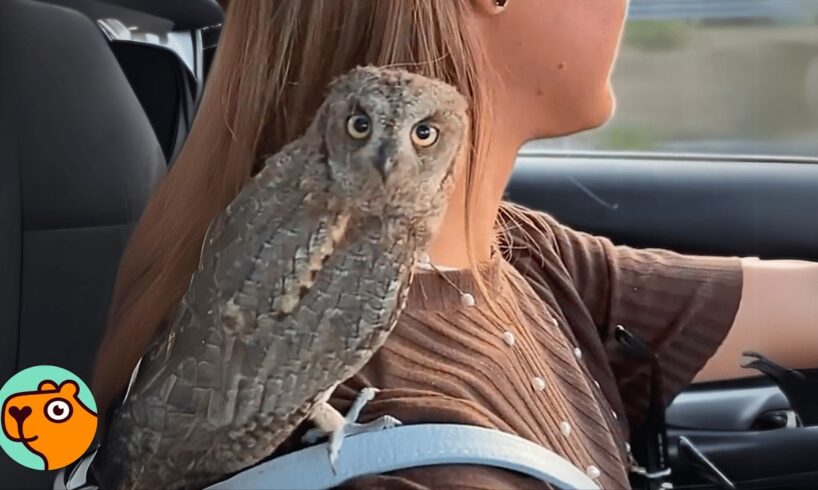
This tiny baby owl loses his entire family in a hurricane, and finds comfort in a girl’s care. Grisha’s adventurous spirit never fails to amaze Sada: he loves climbing up on things in her house, he flies and chats confidently now. However, when Sada just rescued him, it was a whole different bird.
Grisha’s social media:
📸 https://www.tiktok.com/@the.sada/
https://www.youtube.com/@the_sada
You or someone you know have a wonderful pet’s story to share?
Fill this form and let all the world see it on our Cuddle Buddies Channel.
📍 Share your story here:
https://forms.gle/TWcJaM6bN9T18xge6
More cool videos on Cuddle Buddies:
https://youtu.be/06fG8DuFTec
Follow us on social media:
👍 Facebook: https://www.facebook.com/cddlbuddies
📸 Instagram: https://www.instagram.com/cddl_buddies/
🎵 TikTok: http://tiktok.com/@cuddl_buddies
Timecodes:
0:00 – Baby Grisha!
0:50 – Lost in hurricane
1:33 – Learning to fly
About Cuddle Buddies
If animals had a favorite channel — this would be the one. Cuddle Buddies is where animals find their unique voices.
🔻 Hit subscribe together with your cuddle buddy!
https://bit.ly/3J5d2Ym
We discover the true personality of each pet, be it silliness or wisdom. We create videos of amazing animals, and show how animals see the world around them. Heartbreaking stories, funny animal videos, rescue missions — with a fresh perspective.
Cuddle Buddies is a channel for people who talk to their little friends and listen to what they have to say. Because every animal can teach us something. They can be goofy and deep, we just let the animals speak.
#animalstory #cuddlebuddies #wildlife #owl #rescueowl #babyowl #wildanimalrescue
source
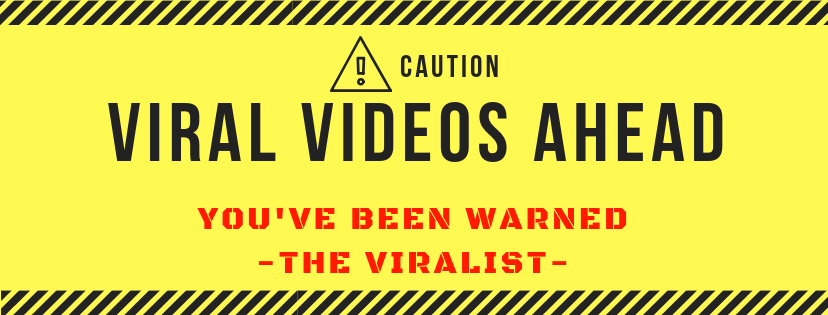
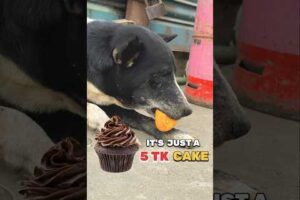

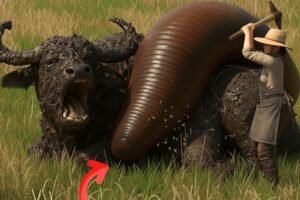

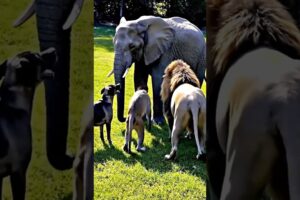

Birds of a feather flock together, and so did these two💗
Thanks!
The animal world when they are babies, they are so cute.I wonder if the dinosaurs were as cute when they were babies
This is great 😊
wtg
Fantastic to see this video and that you came so close to each other❤
You are so sweet to save the owl I’m so sad of his family
i love how his lady adores her baby owl…soo…cute …!!!
God bless the raptor lovers who listen to their own hearts instead of other humans. We need them all!
2:01 I'm not even pooping when at work. Kudo to that owl!
Beautiful, this channel and the stories on it are heartwarming. So lovely to know there are still people out there who care about animals and try to help them. Much love from California.
Nice vidoe!
Bol'shoye spacibo!
WHY didn't the Male Owl, chat up the female Owl, whilst it was raining? It was too wet too woo!
At the very least, you saved that little owl from certain death, and found a friend for life in the process.
You are blessed. And so is your little beaky baby!
Wonderful, the little cute owl, so amazing cute dance, keep caring it🎉❤
Thanks for helping him!
Who
I hope no people ever raide wild birds' nests just to make cute content for social media.
In soviet russia, owl rescues you
There is also the welfare of your own family to consider. Wild animals can be dangerous, especially when frightened or injured. Wildlife diseases, such as distemper, may pose a threat to companion animals, while others, including rabies and tularemia, can be transmitted to humans.
Most people who want to care for a wild animal themselves plan to release the animal once it is grown or has recovered from its injuries. That is the goal of wildlife rehabilitation, but rehabilitators have an advantage when they return their patients to the wild—they have years of experience in letting go, both physically and emotionally. Knowing what the animal needs to survive in the wild, knowing when the animal is ready to be on its own, and learning to avoid becoming too attached to a patient are important parts of becoming a good wildlife rehabilitator.
If you are tempted to care for a wild animal on your own, please ask yourself these questions first:
What is the best thing I can do for this animal?
If I’m having a hard time letting go of the animal now, how will I feel after I’ve really grown attached?
Am I prepared to deal with the legal and financial consequences of keeping a wild animal illegally? How will I feel if the animal is discovered, confiscated, and possibly euthanized?
Am I prepared to deal with the health consequences of someone being bitten or scratched, my pets or house becoming infested with parasites, a person or pet catching a disease, or just simple allergic reactions?
Can I be certain that, once I’ve released the animal back to the wild, it is capable of surviving on its own? Am I providing the best possible chance for survival?
How will my family and I feel if the animal dies in our care or is permanently impaired by my improper care?
Turning the animal over to a licensed/permitted wildlife rehabilitator as soon as possible is the best way to safeguard human and pet safety while providing the wild animal with the best chance of survival. Call a wildlife rehabilitator right away for advice and answers to your questions.
No!
If you have found a wild animal that is truly in crisis, you may be facing a dilemma. Of course, you want to do what’s best for the animal, but you may find it difficult to turn him or her over to a wildlife rehabilitator. Letting go can be hard, especially when the animal is a baby. The temptation to care for the baby yourself may be strong. And having eager young children in the house begging to raise the animal does not make the decision any easier. So why can’t you keep the animal?
In almost every case, keeping a wild animal is illegal. Native wildlife species are protected by state laws, federal laws, or both. To keep a wild animal in captivity for any length of time, for any reason, requires at least one special permit. Most cities and many counties have local ordinances that prevent individuals from keeping wild animals in captivity. Many neighborhood associations or covenants also prohibit keeping wildlife within property boundaries.
Keeping Wild Animals at Home Laws
Yes, there are laws against keeping wild animals in your house. These laws vary by state and country, but generally, they are designed to protect both people and animals. For example, Rhode Island allows the ownership of certain exotic animals like alpacas, domestic cats, and some exotic snakes and lizards, but prohibits the ownership of wild carnivores, non-human primates, and many other species. In Massachusetts, the laws are even stricter, and you can only keep certain domesticated animals as pets.
Wild animals are not suitable as pets because they have specific needs that cannot be met in a home environment. They may also pose a risk to human health and safety. Additionally, keeping wild animals as pets can be illegal without proper permits or licenses, and veterinarians may be unwilling to treat them due to liability concerns.
It’s important to check the specific laws in your area before considering keeping any wild animal as a pet. If you find an injured or orphaned wild animal, it’s best to contact a wildlife rehabilitation facility for assistance.
I was like ohhh he so cute, I wanna ow…………………….and then he took a sht, and I'm like no thanks.